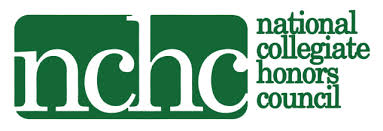The Weight of Words: Correspondence and Holocaust Memory
Small Bites - 1 Credit Hour - UHON 375
Instructor(s): Naomi Yavneh Klos
Course Description
Words have power. In the Holocaust, words were used to legislate hatred, to incite violence, to justify silence, and to record complicity. They also voiced courage, defiance, and even hope. This one-credit class offers you the opportunity to create a public exhibit of original documents – letters from Himmler, Einstein, and prisoners in Auschwitz, pieces of propaganda, and even a menu – that tell a story not only of how the Jewish people of Europe were marginalized and murdered but also of resistance, resilience, and memory.
Each document in this exhibit will serve as a silent witness to the lives affected, the voices silenced, and the humanity both lost and preserved. Choosing from among letters held in a private collection or at NMMHI, you will draw on these artifacts to confront visitors with a painful truth: genocide is not only carried out with weapons, but also with ink, stamps, and signatures.
The course and the exhibit will invite you, and our audience, to reflect on the moral choices made by individuals, institutions, and nations. Our goal is to create an exhibit that will challenge all of us to consider our responsibility in the face of injustice, antisemitism, and all forms of hatred – and to recognize the enduring impact of every word written, spoken, or left unsaid.
Texts
Saul Friedlander, Nazi Germany and the Jews OR
Doris Bergen, War and Genocide (choose one)
Waxman, Women and the Holocaust
Oren B. Stier, "Torah and Taboo: Containing Jewish Relics and Jewish Identity at the United States Holocaust Memorial Museum.” Source: Numen , 2010, Vol. 57, No. 3/4, Relics in Comparative Perspective (2010), pp. 505-536 Published by: Brill Stable URL: https://www.jstor.org/stable/20789598
Requirements
Document exhibit: As a group, our class will create an exhibit of historic documents that will be displayed in April. Components of this project include
- Researching a specific document and creating both a written and an oral presentation of the document, as well as a brief catalogue description
- Your bibliography
- Working as a group to design an exhibit of the documents
- Creating a catalogue
- Training docents (your fellow students) about your document
- Serving as a docent for the exhibit
- Reflection journal
- Final reflection



Social Media
For news, information, prizes and more fun stuff follow us on our social media!
Honors College Resources